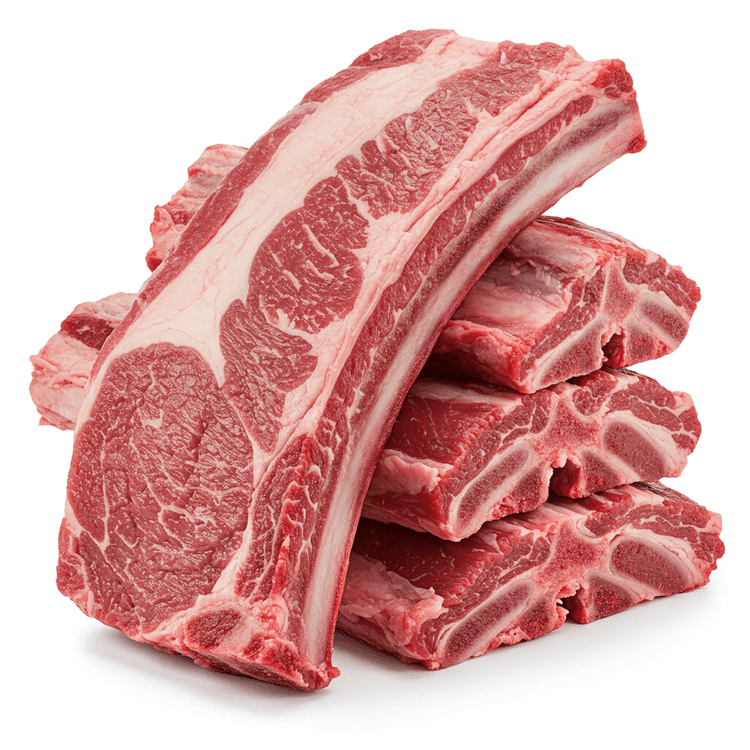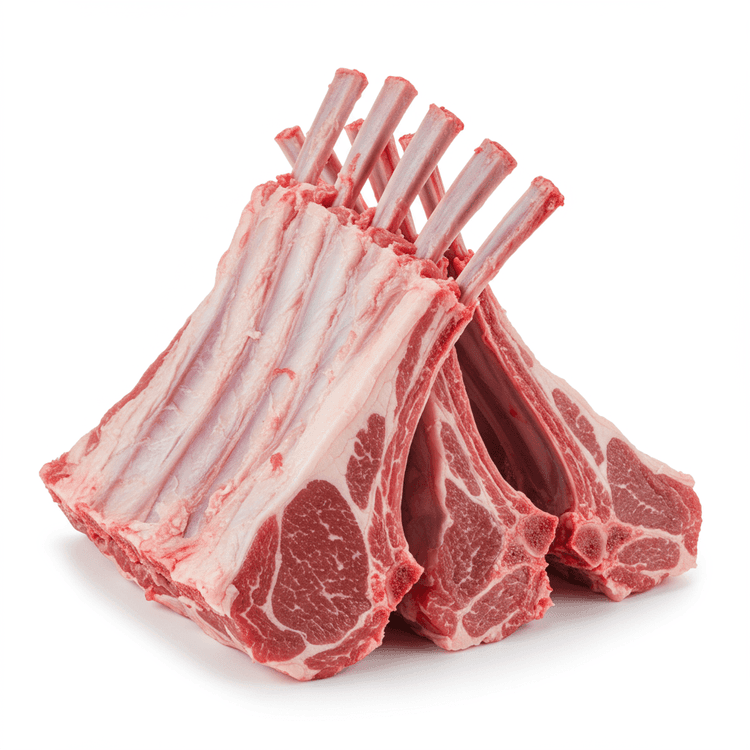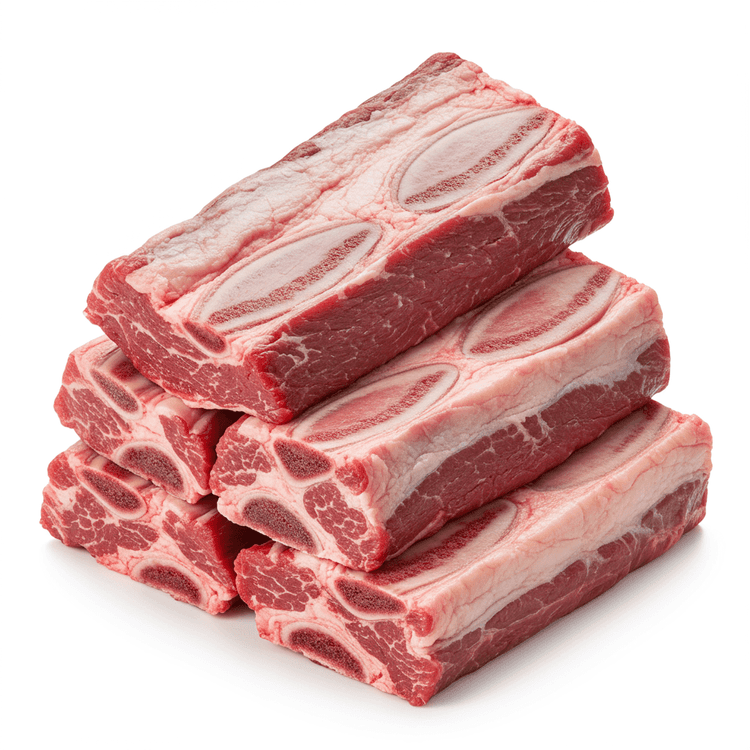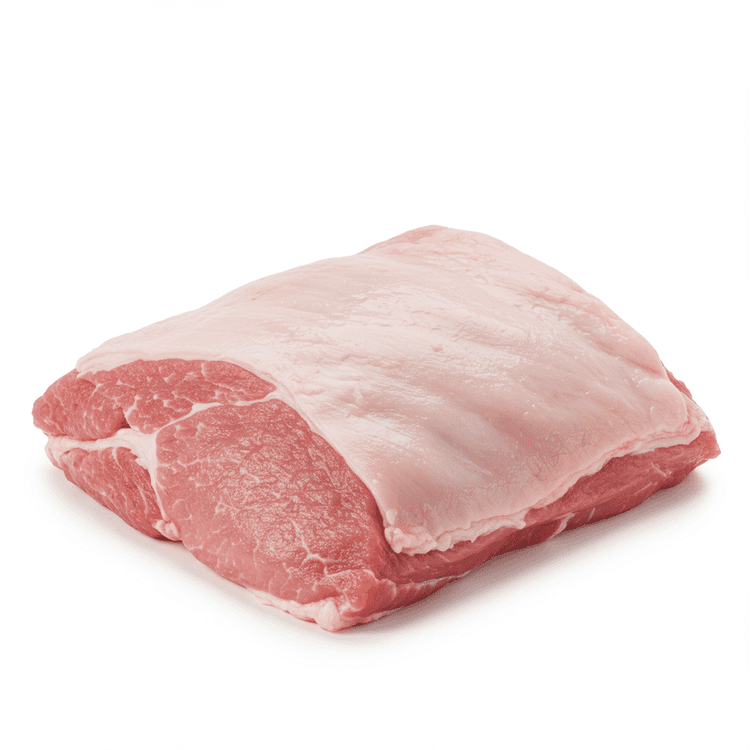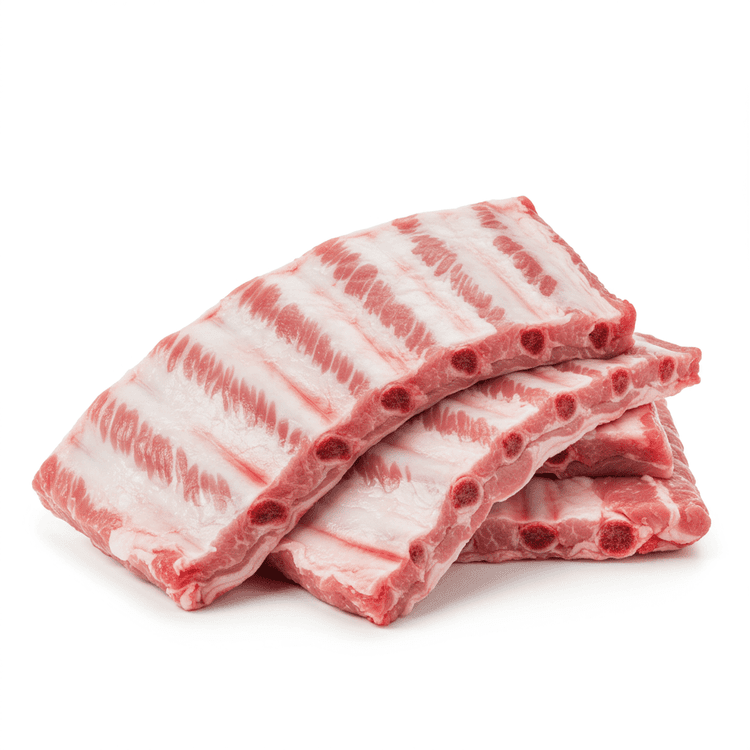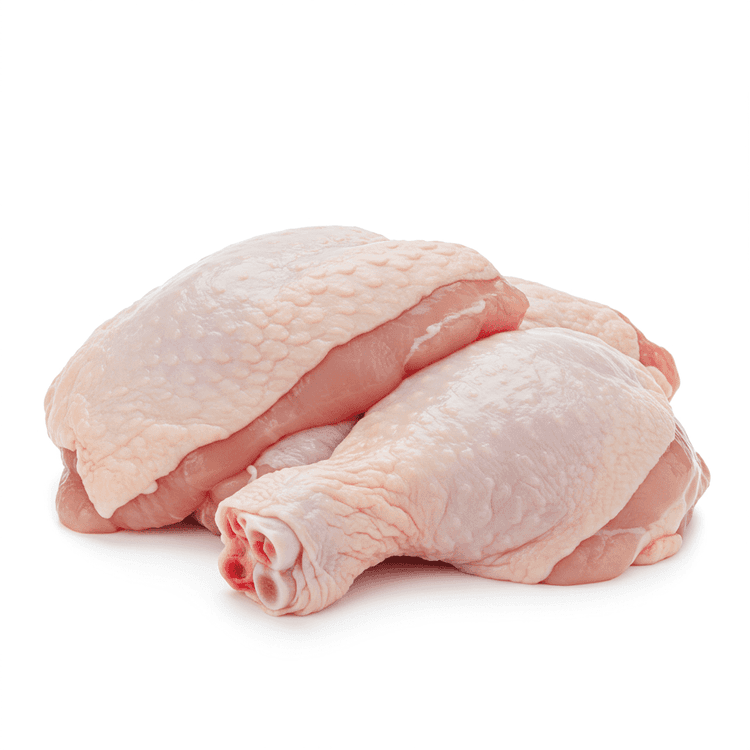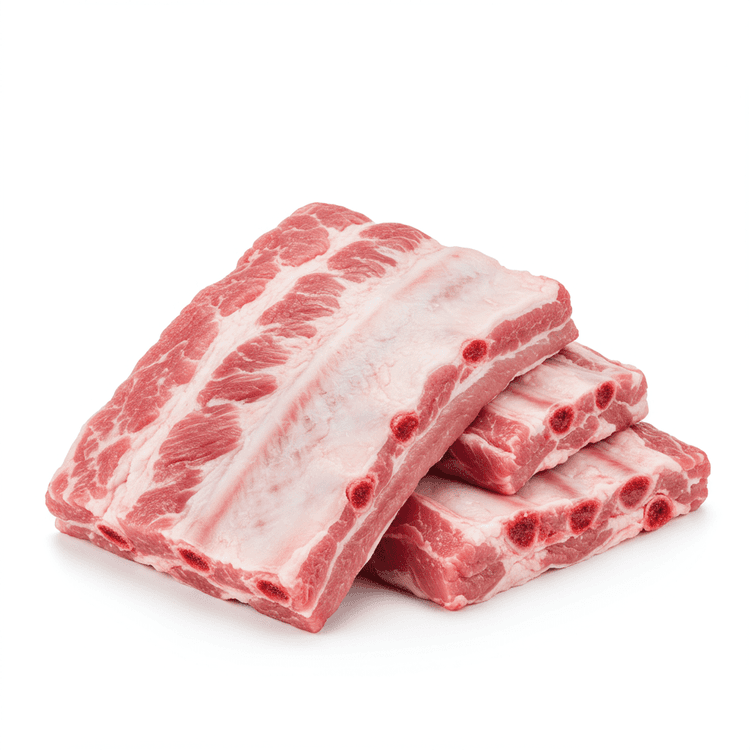
Pork Rib
Pork ribs, a flavorful and popular cut of pork, are known for their rich, meaty taste and tender texture. These ribs, typically sourced from the rib cage of a pig, feature succulent meat interlaced with flavorful fat. Visually, pork ribs showcase a beautiful pink hue when raw, transforming into a tempting brown as they cook. Pork ribs come in various styles, including spare ribs, baby back ribs, and St. Louis-style ribs, each offering a slightly different shape and meat-to-bone ratio. Explore the possibilities with these delicious ribs.
Common Uses
- Pork ribs are delicious when grilled or barbecued. slow cooking over indirect heat ensures tender, fall-off-the-bone ribs. A flavorful dry rub or tangy barbecue sauce enhances the flavor.
- Braised pork ribs are a hearty and comforting dish. Slowly braising the ribs in a flavorful liquid, like wine or broth, creates incredibly tender and moist ribs.
- Pork ribs can be smoked for a unique and intense smoky flavor. Smoking the ribs low and slow infuses them with a deep, rich aroma that elevates the taste.
- Pork ribs can be added to soups and stews for a rich, savory depth. The ribs impart a meaty flavor and tender texture to broths, enhancing the overall dish.
- Pork ribs are delicious when oven-baked until tender and caramelized. Season them with spices and herbs to enjoy as part of a roast.
- Marinated pork ribs are delicious when added to stir-fries and other Asian dishes.
Health Benefits
- Excellent source of protein, essential for muscle building and repair.
- Provides iron, crucial for red blood cell production and preventing anemia.
- Rich in B vitamins, supporting energy metabolism and nerve function.
- Contains zinc, important for immune function and wound healing.
- Offers selenium, an antioxidant that protects cells from damage.
Chefadora AI is here.
Experience smarter, stress-free cooking.
Storage Tips
Pork ribs should be stored properly to prevent spoilage and maintain quality. For short-term storage (1-2 days), wrap ribs tightly in plastic wrap or place in an airtight container and refrigerate immediately. For longer storage (2-3 months), wrap ribs tightly in freezer wrap, freezer bags, or aluminum foil, removing as much air as possible to prevent freezer burn, and freeze. Thaw frozen ribs in the refrigerator before cooking for optimal results.
Marnirni-apinthi Building, Lot Fourteen,
North Terrace, Adelaide, South Australia, 5000
Australia
